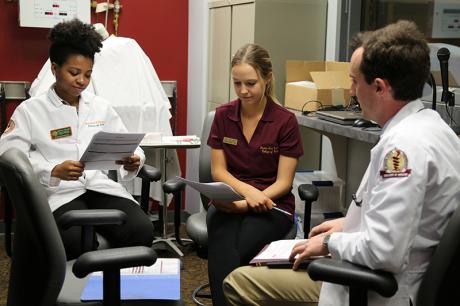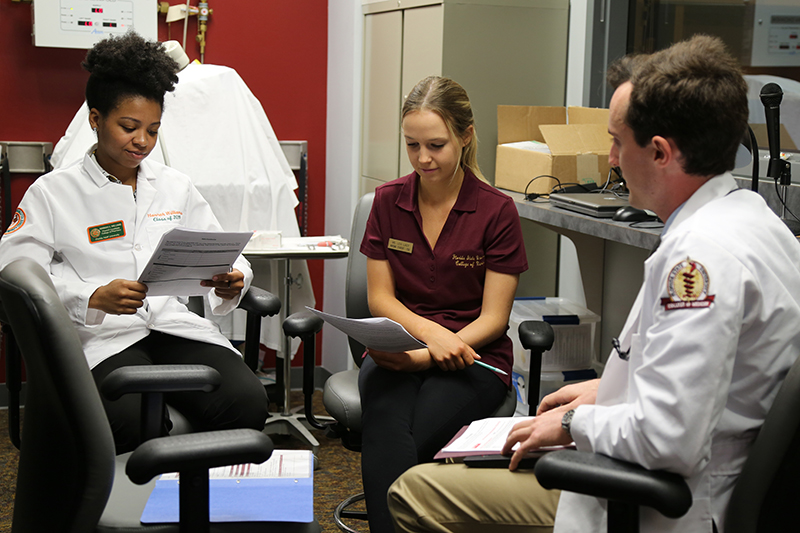A team to rely on


October 2017
Health-care providers often ask themselves, “How can I give my patient the best treatment possible?” In geriatrics, that’s a question best answered by a team.
Earlier this month, more than 400 students from four health-care disciplines experienced that teamwork firsthand as they swarmed the halls of the College of Medicine’s Clinical Learning Center.
Florida’s growing population of older adults is creating an urgent need for geriatric care. To address that need, the Department of Geriatrics invited Florida State medical, nursing and social work students and Florida A&M University pharmacy students for a crash course in interdisciplinary collaboration. They formed small health-care teams and were assigned a case with a geriatric patient in a simulated clinical setting.
“We got an opportunity to see how important it is to have people from all different areas come together so you can come up with the best care plan,” said pharmacy student Brittany Shulte. “With geriatrics there can be so much more to look at and a more extensive medical history to consider. If it was just me as a pharmacist, I would think of the medical needs but I wouldn’t think of the things for social care, like getting a patient into assisted living.”
The exercise was supported by the Geriatrics Department’s $2.25 million grant from the U.S. Health Resources and Services Administration. The grant was awarded in 2015 as part of the Geriatrics Workforce Enhancement Program.
Florida has a larger percentage of older residents than any other state, and the number of those 65 and older is expected to reach nearly 8 million by 2030.
“The percentage has been growing steadily for the past several decades and will eventually reach an astronomical proportion, where we will be truly concerned about how to provide health care to these older adults,” said Niharika Suchak, associate professor of geriatrics and director of the October exercise. “All solutions are not found within one profession. Optimal health care for older adults needs to be able to address common age-associated changes and related challenges as well as the presence of multiple medical conditions, geriatric syndromes, other life events and the patient’s personal goals and values.”
Interprofessional education and collaboration not only benefits older patients but also provides an opportunity for students to see the valuable contributions of their fellow health-care professionals.
“It’s like a sigh of relief knowing that in the future when I’m practicing, I can have a team to rely on and to work with,” said second-year med student Jasmine Jordan. “That makes me even more excited to practice medicine.”

